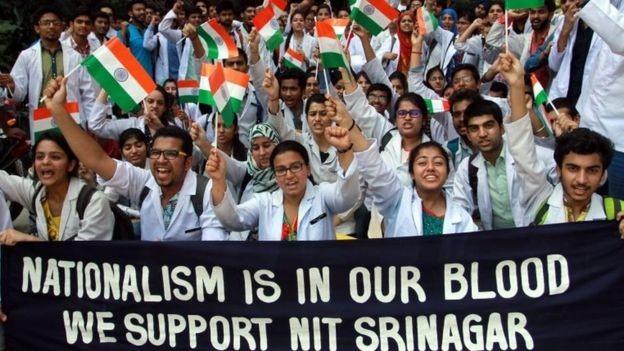Kashmir clashes over militant Burhan Wani leave 30 dead
- Published
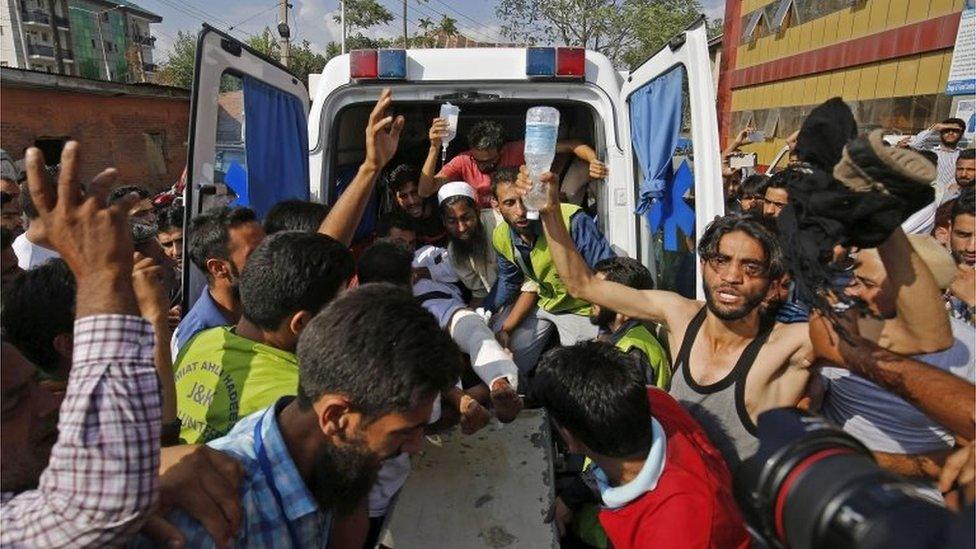
More than 200 people have been injured in the clashes
Police in Indian-administered Kashmir say at least 30 people have been killed in clashes between protesters and security forces following the shooting of a well-known militant leader.
Burhan Wani, 22, died in a gunfight with the Indian army on Friday.
More deaths were reported on Monday after a weekend of violence left 23 dead, including a policeman.
The violence is the worst seen in the region for years. Some 800 extra troops are being sent to help restore order.
More than 200 other people have been injured in the clashes, in which government forces have fired live rounds and tear gas.
A curfew is in place across much of the Muslim-majority Kashmir valley after a police post was set alight and a military airbase targeted during the latest clashes.
Disputed Kashmir is claimed in its entirety by both India and Pakistan and has been a flashpoint for more than 60 years, sparking two wars between the countries.
Kashmir deaths after key militants killed
Why a cricket match caused student unrest in Kashmir
Within the disputed Muslim-majority territory, some militant groups have taken up arms to fight for independence from Indian rule or a merger with Pakistan.
The last bout of serious violence in the region was in the summer of 2010, when more than 100 people died in anti-India protests, which broke out after police shot dead a teenager.
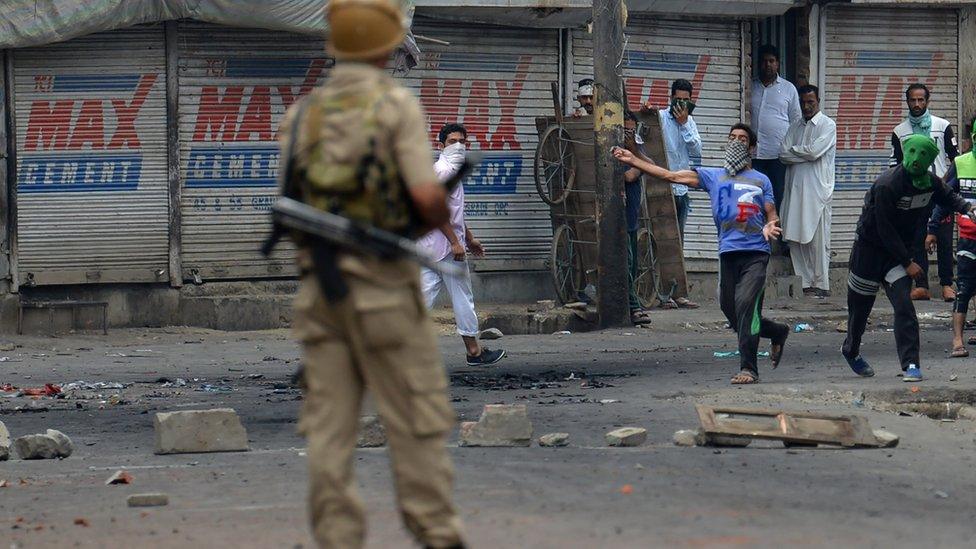
The clashes began after popular militant commander Burhan Wani was killed by security forces

Who was Burhan Wani? By Shujaat Bukhari, Srinagar
Burhan Wani is largely credited with reviving the image of militancy in Indian-administered Kashmir.
Born to a highly educated upper-class Kashmiri family, Wani is believed to have been driven to militancy at the age of 15, when he was beaten up by police along with his brother "for no reason".
Wani was extremely active on social media and, unlike militants in the past, did not hide his identity.
His video messages, which would often go viral in Kashmir, were on the topics of Indian injustice, and the need for young people to stand up to oppression.
Indian officials have said that he was instrumental in persuading local boys to take up arms.

Curfew under strain
Almost all the dead in the current outbreak of violence are protesters.
The policeman died after his car went into a river in the Jhelum area on Sunday.
Police say the vehicle was pushed in by crowds but some accounts say it went into the water after the driver lost control in an attempt to avoid stone-throwing mobs.
The BBC's Riyaz Masroor in Srinagar says tensions remained high on Monday, with crowds attempting to breach curfew orders.
Four top separatist leaders released a joint statement in which they called on India's government to "abandon the policy of stopping people's marches by bullets".
The violence has led to the suspension of a popular Hindu religious pilgrimage to the Amarnath temple shrine, which has stranded some 15,000 devotees in the neighbouring region of Jammu, Indian media reported.
More than 2,000 pilgrims who were on the way back from the temple have been airlifted out of Kashmir, police officials told the BBC.
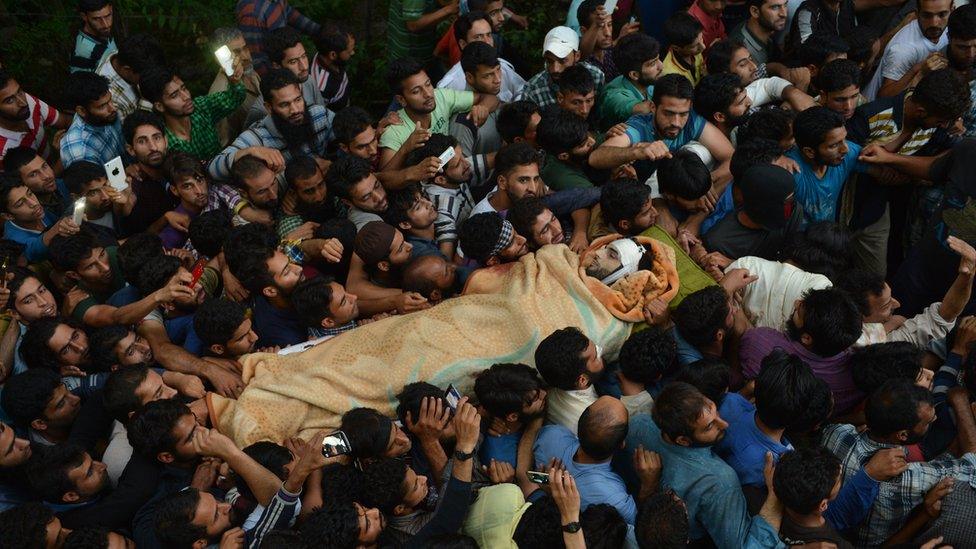
Thousands attended Wani's funeral which was held in his hometown of Tral
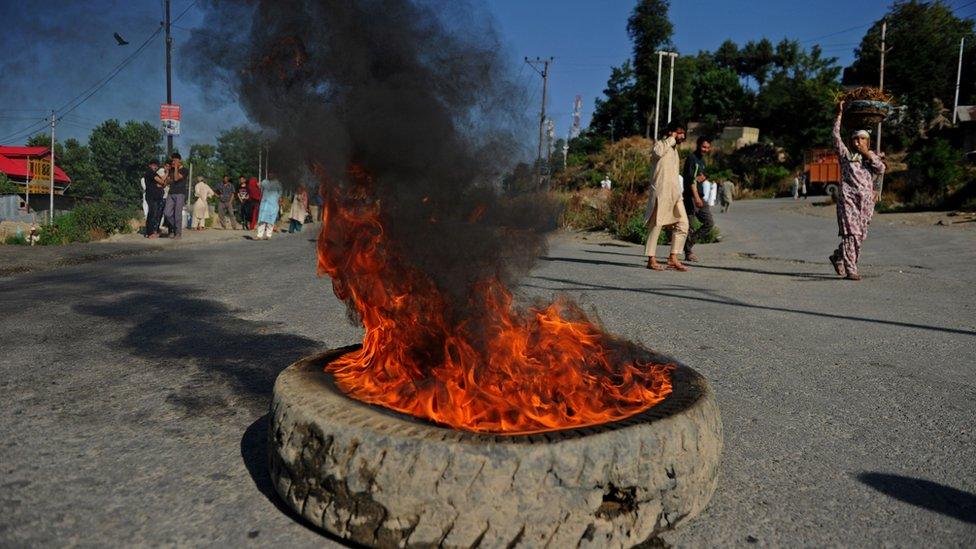
Police stations and military installations have been attacked in violent clashes across the region
Thousands attended Wani's funeral which was held in his hometown of Tral, about 40km (25 miles) south of Srinagar, on Saturday.
Police stations and military installations were attacked in violent clashes afterwards, with several buildings burned down, police added.
The state government has said that it would also investigate reports of excessive police violence towards unarmed protesters.
Rights groups have described the current situation as a state of emergency. Hospitals struggled to cope with wounded protesters and phone and internet services were suspended.
The level of separatist insurgency violence in the region has ebbed and flowed since 1989, but it has claimed the lives of tens of thousands of people, mainly civilians.
- Published10 July 2016
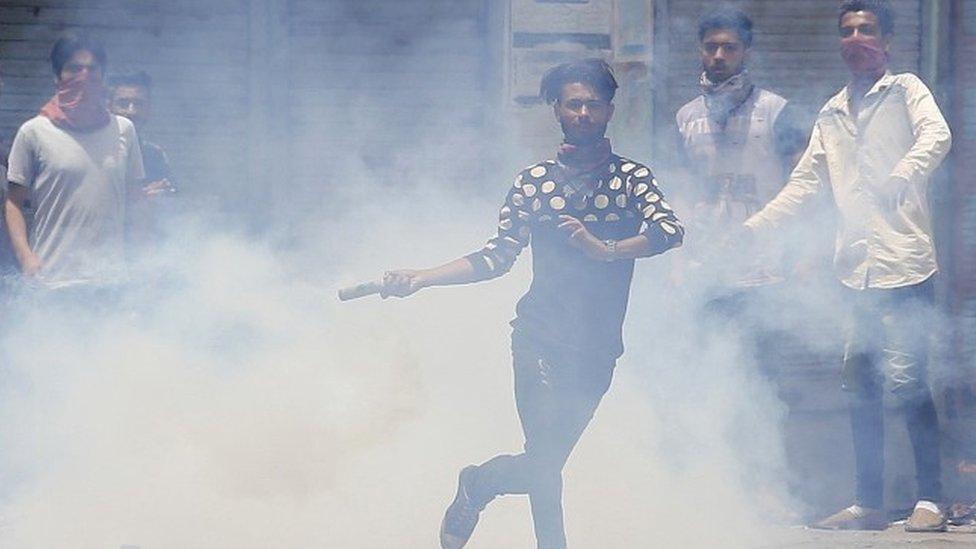
- Published8 April 2016
